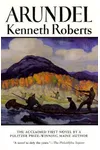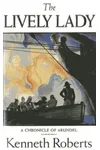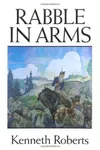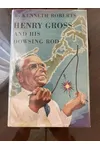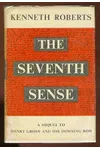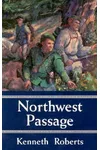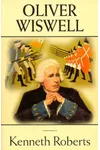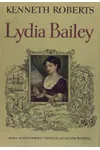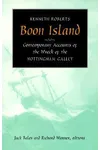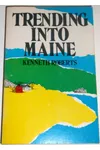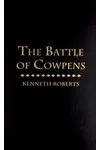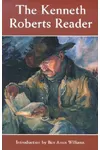Picture a Maine-born storyteller who spun America’s past into gripping tales that challenged history’s dusty pages—meet Kenneth Roberts! From his days as a roving journalist to becoming a Pulitzer-honored novelist, Roberts breathed life into forgotten heroes and controversial figures, making the American Revolution and colonial era feel as vivid as today’s headlines. His knack for blending meticulous research with page-turning narratives earned him a devoted readership and a lasting legacy.
The Making of Kenneth Roberts
Born on December 8, 1885, in Kennebunk, Maine, Kenneth Lewis Roberts grew up steeped in New England’s rugged charm, which later colored his novels. After graduating from Cornell University in 1908—where he penned lyrics for two fight songs—Roberts dove into journalism, sharpening his storytelling skills at the Boston Post and later the Saturday Evening Post. His time as a World War I intelligence officer and a globetrotting correspondent fueled his fascination with history’s untold stories, setting the stage for his pivot to fiction.
By 1928, Roberts, nudged by his neighbor and Pulitzer Prize-winning novelist Booth Tarkington, traded deadlines for novels. Tarkington’s mentorship and editorial hand shaped Roberts’s early works, helping him craft tales that were both historically rich and irresistibly readable. This leap from newsrooms to novels wasn’t just a career shift—it was the birth of a literary force.
Kenneth Roberts’s Unforgettable Stories
Roberts’s novels, often set in his beloved New England, tackled the American Revolution and colonial struggles with a bold twist: he championed underdogs and vilified figures like Benedict Arnold and Robert Rogers. His 1937 bestseller, Northwest Passage, follows Major Robert Rogers and his Rangers during the French and Indian War, blending adventure with a gritty look at ambition’s cost. The book’s serialization in the Saturday Evening Post skyrocketed its fame, landing it as the second-best-selling novel of 1937.
Arundel (1930) and Rabble in Arms (1933) form the heart of his Chronicles of Arundel, tracing Maine-native Steven Nason through Benedict Arnold’s daring march to Quebec. These novels showcase Roberts’s signature style: vivid characters, immersive settings, and a knack for flipping historical narratives. Oliver Wiswell (1940), told from a Loyalist’s perspective, stirred debate but cemented his reputation for tackling history’s gray areas. Lydia Bailey (1947) ventures to Haiti, weaving romance and revolution with Roberts’s trademark historical depth.
His writing wasn’t just storytelling—it was a crusade for truth. Roberts pored over primary sources, even uncovering lost court-martial transcripts for Northwest Passage. His commitment to accuracy, paired with a conversational flair, made history leap off the page, inviting readers to question what they thought they knew.
Why Kenneth Roberts Matters
Kenneth Roberts didn’t just write novels; he reshaped how we view America’s past. His focus on overlooked figures and unpopular causes—like Loyalists or tarnished heroes—challenged patriotic myths, sparking conversations that resonate today. His 1957 Pulitzer Prize Special Citation honored his role in igniting “greater interest in our early American history.” Novels like Northwest Passage, adapted into a 1940 Spencer Tracy film, brought history to mainstream audiences, blending education with entertainment.
Roberts’s influence endures in the historical fiction genre, inspiring writers to dig deeper and think bolder. His Maine-rooted stories preserve New England’s cultural tapestry, while his contrarian spirit reminds us that history is never black-and-white. For readers, his works remain a thrilling portal to America’s formative years.
- Born: December 8, 1885, Kennebunk, Maine
- Key Works: Northwest Passage, Arundel, Rabble in Arms, Oliver Wiswell
- Awards: 1957 Pulitzer Prize Special Citation
- Died: July 21, 1957, Kennebunkport, Maine
About Kenneth Roberts
Ready to step into America’s past? Snag Northwest Passage or Arundel and dive into Kenneth Roberts’s thrilling world of historical fiction!
